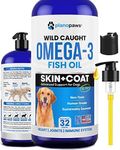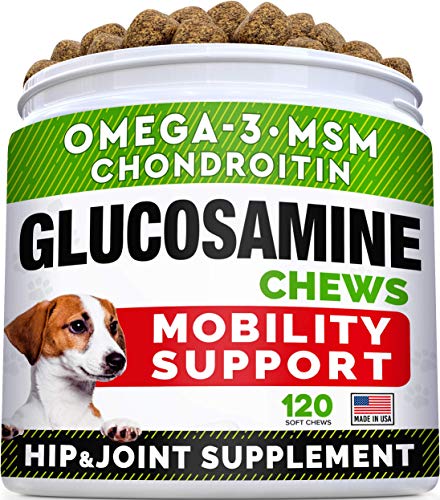We Use CookiesWe use cookies to enhance the security, performance,
functionality and for analytical and promotional activities. By continuing to browse this site you
are agreeing to our privacy policy
Best Allergy Supplement For Dogs
From leading brands and best sellers available on the web.#2
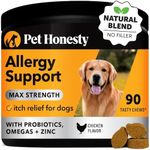
Pet Honesty
PetHonesty Premium Allergy Support for Dogs
View Product
#3
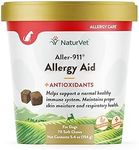
NaturVet
Aller-911 Allergy Aid Supplement, Skin & Respiratory Health Plus Antioxidants, Support a Healthy Immune System for Your Dog, Made by NaturVet
View Product
#4

Vet's Best
Vet's Best Allergy Itch Relief Dog Shampoo, 16 oz
View Product
#5

NaturVet Allergy Aid Hemp Soft Chew for Dogs 60 Count (Jar)
View Product
#6
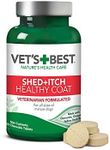
Vet's Best
Vet's Best Healthy Coat Shed & Itch Relief Dog Supplements, 50 Chewable Tablets
View Product
#7

NaturVet
Naturvet Evolutions - Anchovy + Allergy Support Soft Chews
View Product
Buying Guide for the Best Allergy Supplement For Dogs
Choosing the right allergy supplement for your dog can make a big difference in their comfort and overall health. Since every dog is unique, it's important to understand what ingredients and features to look for, and how these can address your dog's specific allergy symptoms. Always consult your veterinarian before starting any new supplement, but knowing what to look for will help you make an informed decision and have a more productive conversation with your vet.Active IngredientsActive ingredients are the main components in a supplement that help relieve allergy symptoms. Common ones include omega-3 fatty acids, quercetin, probiotics, and various herbal extracts. Each ingredient targets different aspects of allergies, such as reducing inflammation, supporting skin health, or boosting the immune system. When comparing supplements, look for ingredients that match your dog's symptoms—like omega-3s for itchy skin or probiotics for digestive issues. If your dog has sensitivities or is already taking other medications, check with your vet to avoid unwanted interactions.
Form of SupplementSupplements come in various forms such as chews, powders, liquids, or capsules. The form affects how easy it is to give the supplement to your dog and how well your dog will accept it. Chews are often flavored and can double as treats, making them a good choice for picky eaters. Powders and liquids can be mixed with food, which is helpful for dogs who refuse pills. Capsules may be best for dogs who are used to taking medications. Consider your dog's preferences and your own routine when choosing the form.
Intended Allergy ReliefSome supplements are designed for general allergy support, while others target specific issues like skin allergies, environmental allergies, or food sensitivities. It's important to match the supplement to your dog's main symptoms. For example, if your dog has seasonal itching and redness, look for products focused on skin and coat health. If digestive upset is the main problem, a supplement with probiotics may be more appropriate. Understanding your dog's symptoms will help you pick the most effective supplement.
Additives and FillersAdditives and fillers are extra ingredients that may be included for flavor, texture, or preservation. Some dogs are sensitive to artificial colors, flavors, or preservatives, which can actually worsen allergy symptoms. When reviewing supplements, check the ingredient list for unnecessary additives, especially if your dog has a history of sensitivities. Choosing a supplement with minimal, natural ingredients is usually a safer bet for dogs with allergies.
Dosage and Serving SizeDosage refers to how much of the supplement your dog needs to take, usually based on their weight. Serving size can affect convenience and cost, as well as how easy it is to ensure your dog gets the right amount. Some supplements require multiple servings per day, while others are once daily. Make sure the dosage instructions are clear and that the serving size is practical for your dog's size and your daily routine. Always follow the recommended dosage to avoid under- or overdosing.
